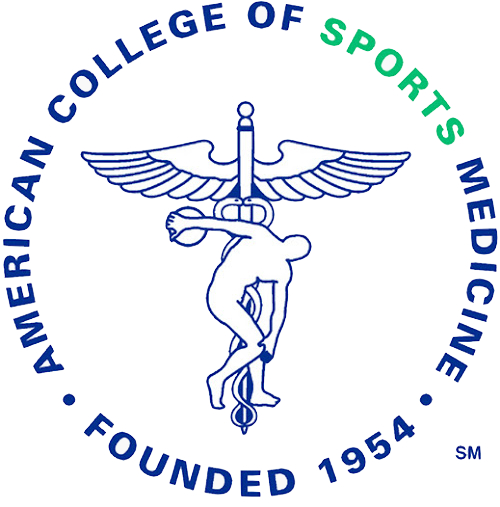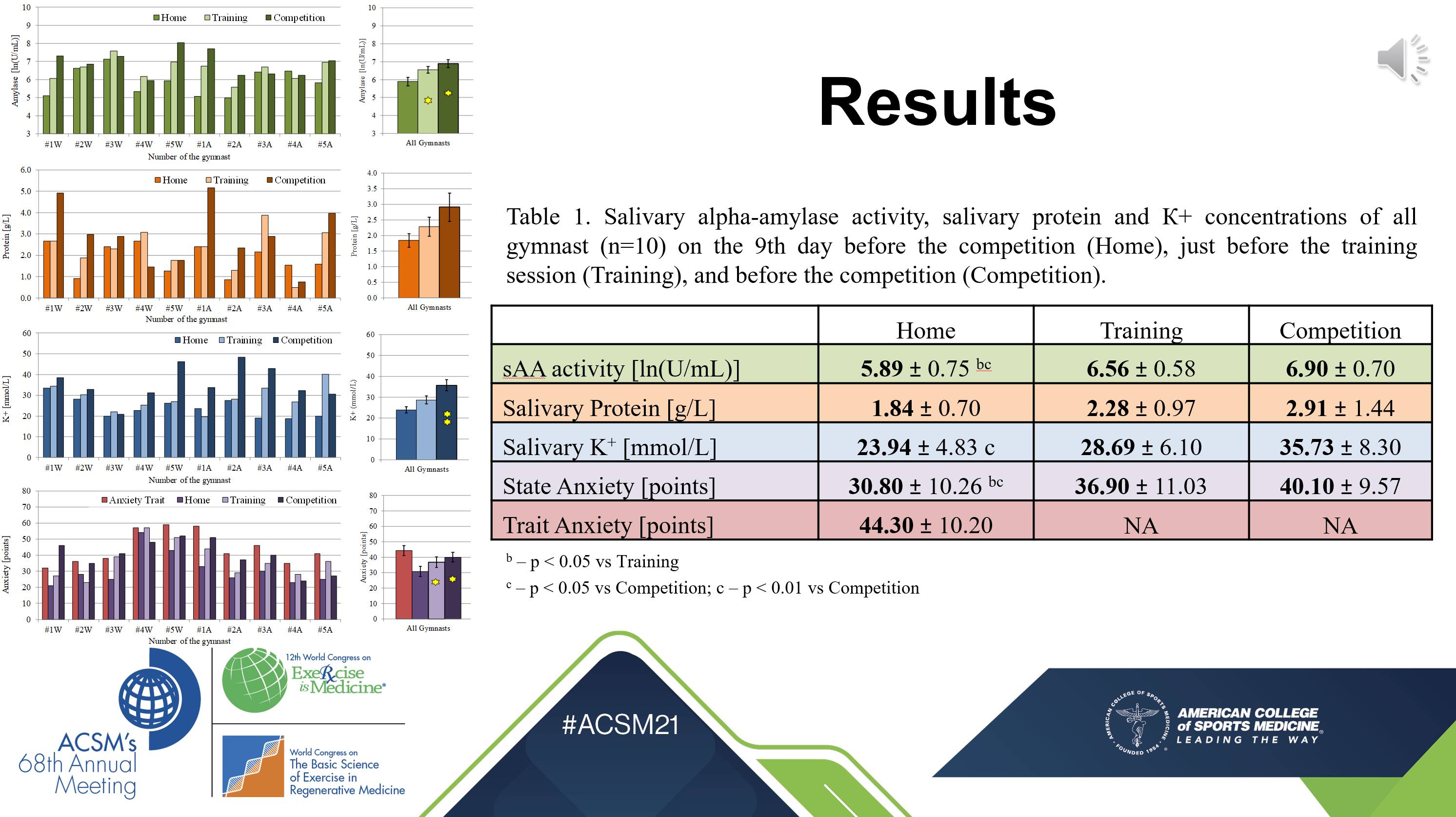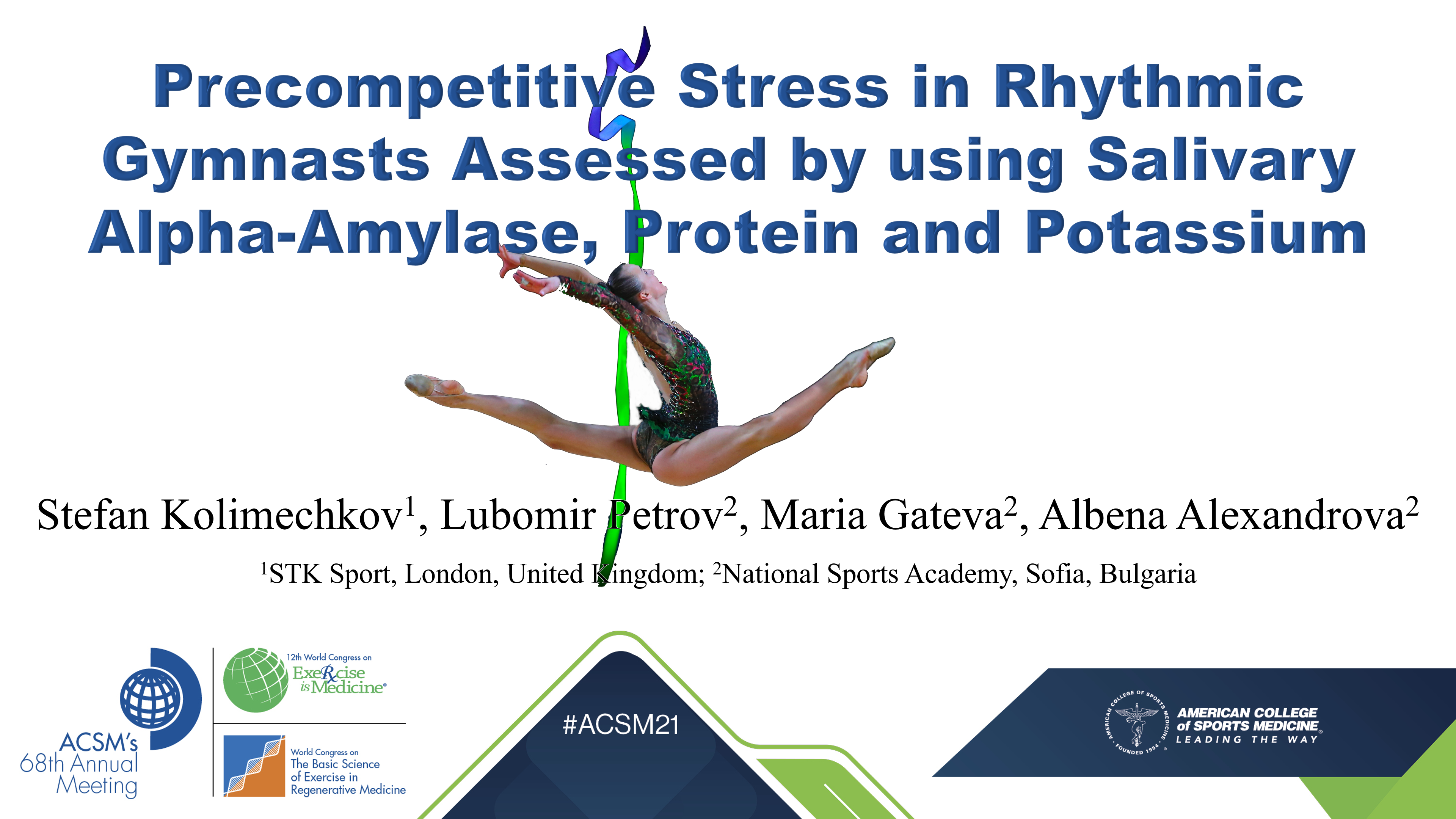ACSM Annual Meeting 2021

ACSM Annual Meeting 2021
68th Annual Meeting of the American College of Sports Medicine, 12th World Congress on Exercise is Medicine®, and World Congress on the Basic Science of Exercise in Regenerative Medicine
VIRTUAL CONFERENCE
www.acsmannualmeeting.org
Video format: MP4 | watch on YouTube
ABOUT THE CONFERENCE
The American College of Sports Medicine (ACSM) is the world’s largest and most influential organization in sports medicine, exercise science, and the promotion of physical activity. The ACSM's main flagship event is the Annual Meeting, which brings together more than 6 000 professionals for the largest conference in sports science in the world. This year is the 68th Annual Meeting, and the conference is held virtually in June 1-5, 2021.
OUR CONTRIBUTION
This was my first time presenting at the ACSM Annual Meeting. Our study on stress in rhythmic gymnasts was accepted for presentation in an ePoster. Our presentation was part of the 1500+ scientific abstract/clinical case e-posters from the official scientific programme at the virtual 2021 American College of Sports Medicine Annual Meeting, World Congress on Exercise is Medicine® and World Congress on the Basic Science of Exercise in Regenerative Medicine. The abstract was published in Medicine and Science in Sports and Exercise, Volume 53:5 Supplement, and together with our presentation are both available for download on this page. After the conference, our study will be built upon further and the complete findings will be published in an international peer-reviewed journal.
Precompetitive stress in rhythmic gymnasts assessed by using salivary alpha-amylase, protein and potassium
Pre-recorded ePoster Presentation (Virtual)

ACSM Annual Meeting 2021
68th Annual Meeting of the American College of Sports Medicine
PRECOMPETITIVE STRESS IN RHYTHMIC GYMNASTS ASSESSED BY USING SALIVARY ALPHA-AMYLASE, PROTEIN AND POTASSIUM
Stefan Kolimechkov1, Lubomir Petrov2, Maria Gateva2, Albena Alexandrova2
1STK Sport, United Kingdom
2National Sports Academy, Bulgaria
ABSTRACT
Stress and adaptation are primary components of training and competitions in rhythmic gymnastics. This sport requires gymnasts to demonstrate maximum physical effort under great psychological pressure. Non-invasive biomarkers, such as salivary alpha-amylase (sAA), function as useful indicators of stress in acute and chronic stress studies.
PURPOSE:
To assess the pre-competitive stress levels in rhythmic gymnasts by using non-invasive biochemical methods and anxiety questionnaires.
METHODS:
The study included 10 rhythmic gymnast competitors (age: 14.7±1.57 years), at the Bulgarian Rhythmic Gymnastics Championships. Saliva was collected by using cotton swab salivates without salivary stimulation at three different times: at home nine days pre-competition (baseline), before a training session five days pre-competition, and just before the competition. The sAA activity and the concentration of salivary protein (sP) and salivary potassium (K+) were measured. Trait and state anxiety were evaluated by using the Spielberger State-Trait Anxiety Inventory. Comparisons were made using one-way ANOVA with repeated measures.
RESULTS:
The mean state anxiety score was significantly higher before the training session in contrast to the baseline, 36.90±11.03 vs 30.80±10.26, p<0.05 and before the competition, 40.10±9.57 vs 30.80±10.26, p<0.05). The mean sAA activity was 5.89±0.75 ln(U/mL) at baseline, and increased significantly to 6.56±0.58 ln(U/mL) just before the training session (p<0.05), and it was 6.90±0.70 ln(U/mL) before the competition (p<0.05 vs baseline). The mean sP concentration increased progressively but the differences were not significant 1.84±0.70 [g/L] vs 2.28±0.97 [g/L] vs 2.91±1.44 [g/L], respectively. The mean salivary K+ concentration was significantly higher before the competition vs the baseline value (35.73±8.3 mmol/L vs 23.94±4.83 mmol/L, p<0.01).
CONCLUSION:
The sAA activity and salivary K+ concentration were both in agreement with the anxiety scores, and they can be applied as useful non-invasive biomarkers of stress. A combination of psychological, biochemical and physiological indicators should be used to establish a comprehensive assessment of stress in competitive sport.
Presenting Author: Dr Stefan Kolimechkov
Date & time: 1 June 2021, 11:30 am
Pre-recorded ePoster Presentations, Virtual
Session-ID: EP-08 - Psychology, Behavior and Neurobiology
Abstract-ID: 1010
How to cite this study:
After the 68th ACSM Annual Meeting, our study will be built upon further and the complete findings will be published in a peer-reviewed journal, so you can cite the article as follows: coming soon

